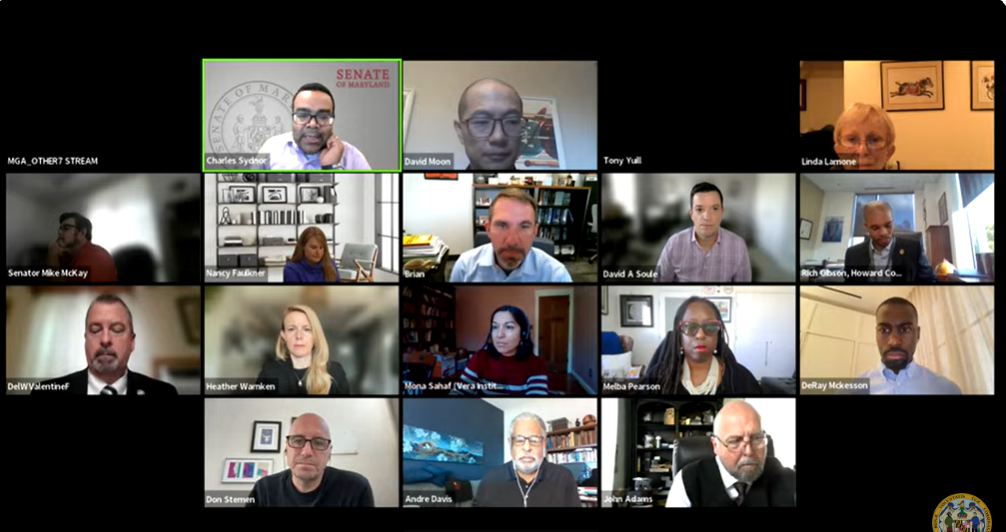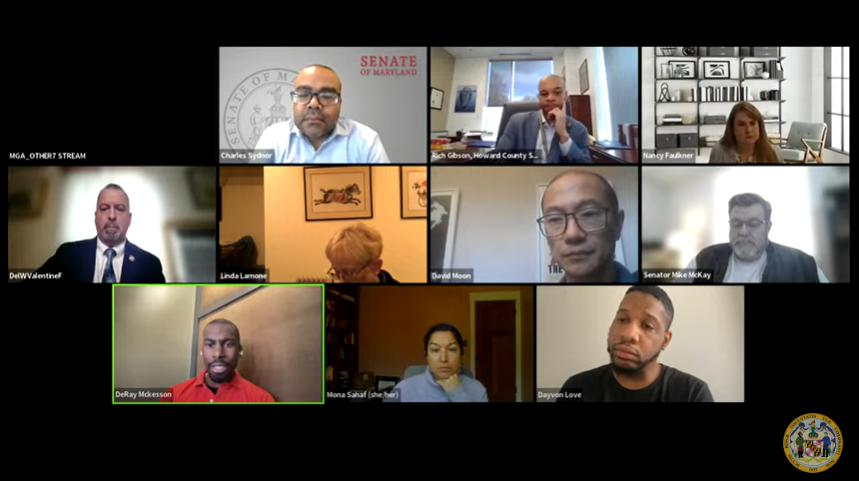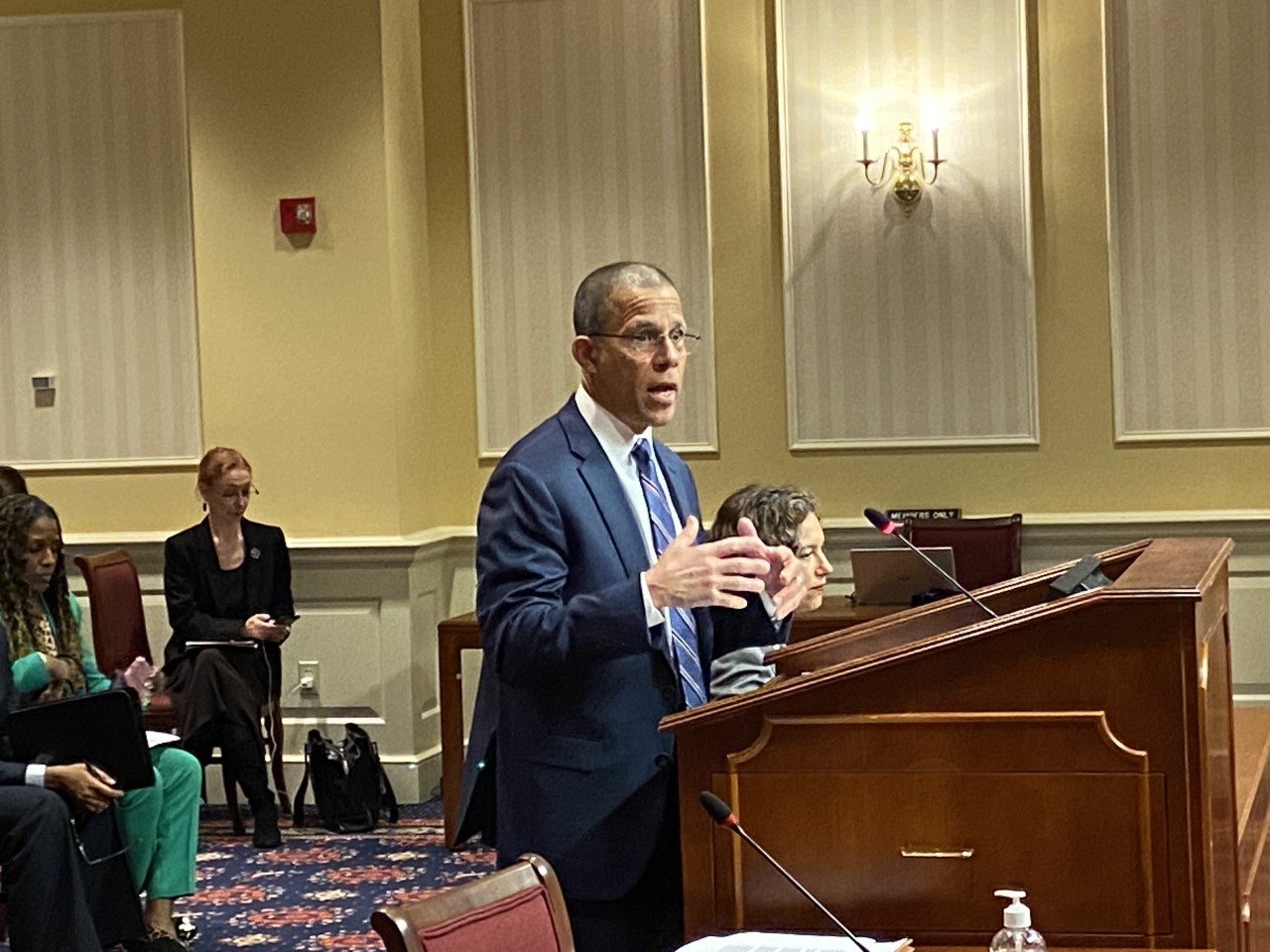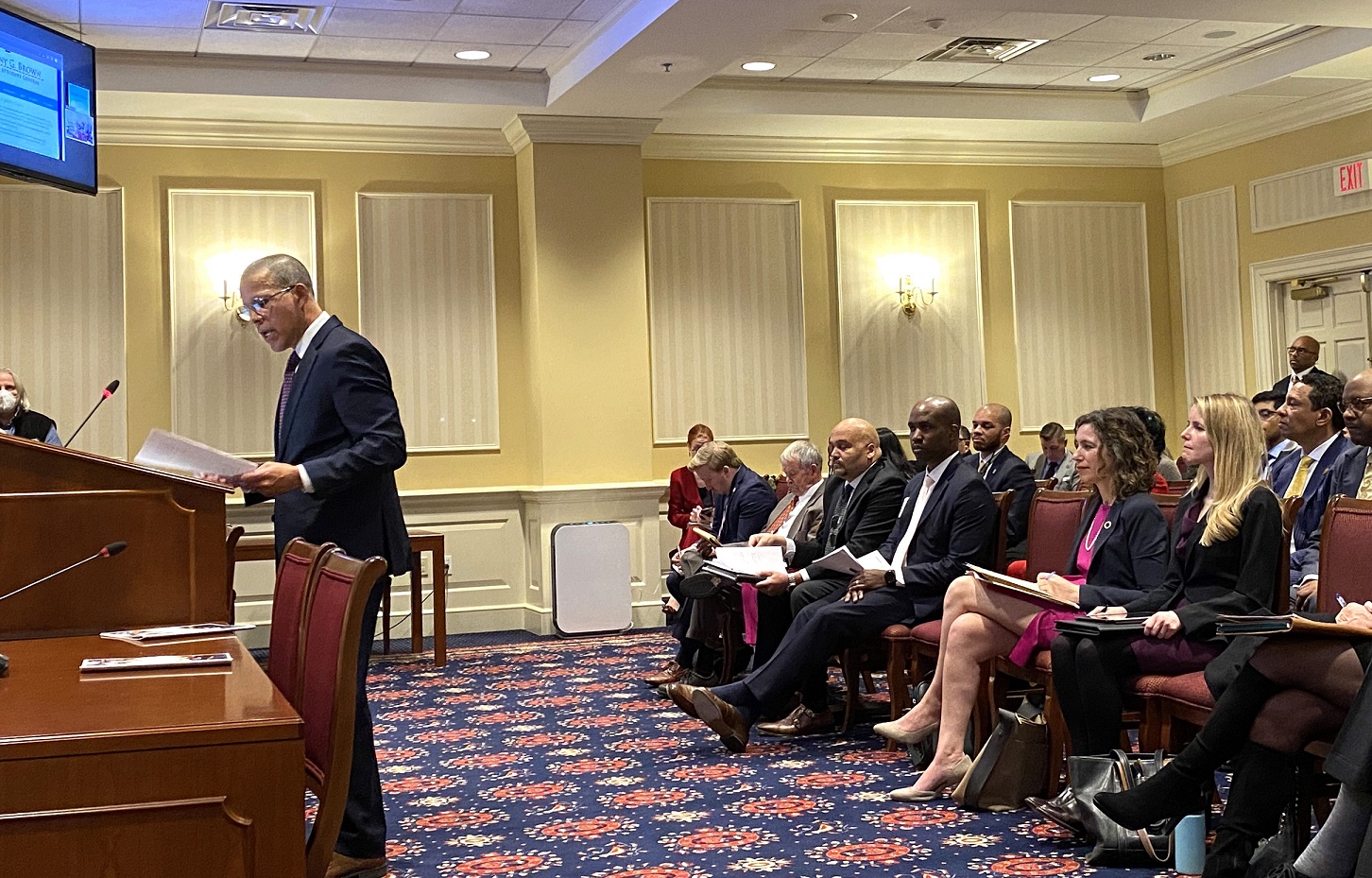Research group: Maryland’s local prosecutors could be more transparent

Representatives with a national organization that collects and analyzes data for prosecutors’ offices said Maryland’s transparency is good, but could be better.
Prosecutorial Performance Indicators (PPI), a group that includes researchers and college and university professors, appeared during an online meeting Wednesday before the Task Force to Study Transparency Standards for State’s Attorneys. The 14-member task force held its first meeting Oct. 18, but has until Dec. 31 to provide recommendations on what information prosecutors should make public.
One recommendation from PPI would be to produce public prosecutorial dashboards, tool recently released in Montgomery County.
The county’s state’s attorney office produced its own dashboard that went public Oct. 19. It includes a summary of the criminal justice process, number of cases filed based on the gender, age and race of a victim and defendant, and the types of sentences imposed.
According to the Montgomery County dashboard, the number of total cases filed in Circuit Court in 2020 was nearly 1,200; 1,370 in 2021; and almost 1,700 last year.
The Office of the State’s Attorney for Baltimore City has an interactive data dashboard that allows users to research arrests based on person’s race, gender and age between 2019 to this year.
In terms of a statewide model, Performance Indicators helped produce dashboards in Colorado.
Each dashboard shows data on items such as number of cases filed during a particular year, felony and misdemeanor cases resolved and number of employees in a particular office.
Don Stemen, a co-manager with Performance Indicators and a chair in the Department of Criminal Justice and Criminology at Loyola University in Chicago, said 14 of the 22 prosecutor offices the group worked with can share information from each dashboard, which are administered by the Colorado District Attorneys’ Council.
“What that allows is the extraction of identical data for every prosecutor’s office in the state of Colorado and creation of a common set of metrics across the state,” said Stemen, who added that presenting more data changes the culture of a prosecutor’s office “to be a data driven organization versus an anecdote driven organization.”
Grant funding helped launch the project, but he said the goal is to become a statewide model. That will include a request for money from the Colorado legislature to hire analysts for smaller prosecutor offices that don’t have one.
Melba Pearson, another co-manager with Performance Indicators and director of prosecution projects at Florida International University, said funding can be a “touchy, tough topic.”
Pearson said it can help to work with a local university that has staff who can assist in research and data collection.
However, she said a funding stream should be available for prosecutor’s offices without a case management system, or for those without a data analyst or data entry employee.
“Just to ask them to do this as an unfunded mandate would be setting this up for failure. There would have to be a funding stream,” Pearson said.
Howard County State’s Attorney Rich Gibson Jr., who also serves as president of the Maryland State’s Attorneys’ Association, said at last month’s task force session most offices don’t employ statisticians and the majority of funding comes from county budgets.
On Wednesday, Gibson said Talbot County is working to get a case management system.
The task force will meet again online at 1 p.m. Nov. 14.




 Creative Commons Attribution
Creative Commons Attribution